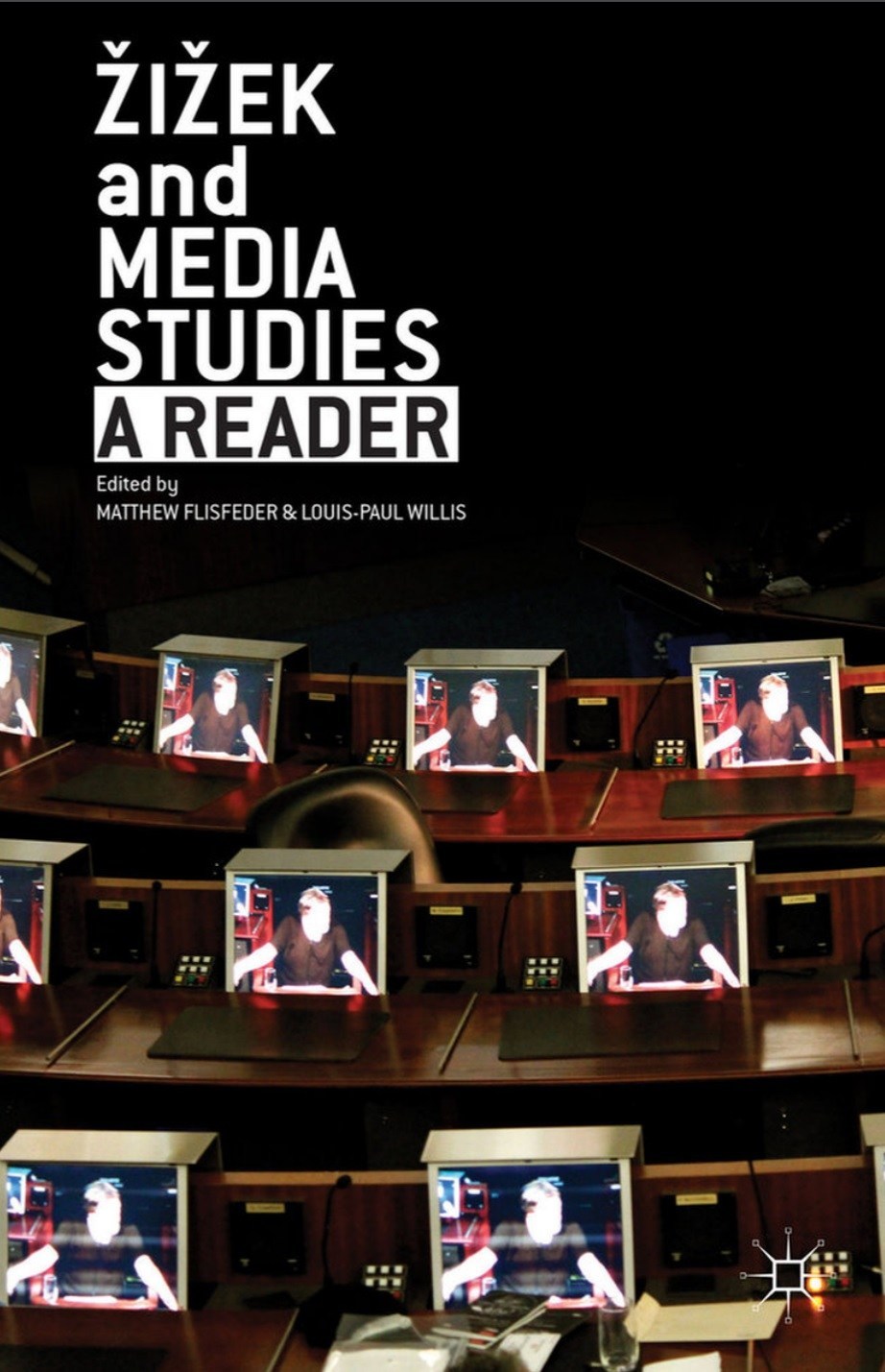Difference between revisions of "Books/Slavoj Zizek/Zizek And Media Studies"
< Books | Slavoj Zizek
(importing zizek books test) |
|||
| Line 1: | Line 1: | ||
=‘Žižek and Media Studies: A Reader’ by Matthew Flisfeder & Louis-Paul Willis= | =‘Žižek and Media Studies: A Reader’ by Matthew Flisfeder & Louis-Paul Willis= | ||
<div class="entry-content"> | <div class="entry-content"> | ||
| − | [[Image: | + | [[Image:Matthew-flisfeder-zizek-and-media-studies-a-reader-theoryleaks.jpg|frame|right|300px]] |
| − | [https://mega.nz/#!9nI3QYbB!mkjtwo9XjdEiw-EKTAvuO0TmHbJlmAs2tAJL49XCDlw DOWNLOAD] | + | {{Center|<big>'''[https://mega.nz/#!9nI3QYbB!mkjtwo9XjdEiw-EKTAvuO0TmHbJlmAs2tAJL49XCDlw DOWNLOAD]'''</big>}} |
| − | Since the early 1970s, film, media, and cultural theorists have appealed to Lacanian psychoanalytic theory in order to discern processes of subjectivization, representation, and ideological interpellation. However, beginning with the work of theorists such as Jacqueline Rose, Joan Copjec, and Slavoj Žižek, a new approach to Lacan has been advanced, one which pays closer attention to concepts such as sexual difference, the ‘''objet petit a''‘ (the object-cause of desire), fantasy, the Real, enjoyment, and the drive. Žižek in particular has advanced a political-philosophical re-interpretation of Lacan that has spawned a whole new wave of film, media, and cultural theory that shows a marked difference from an early Lacanian approach. The contributors in this book take up a specifically Žižekian approach to studies of cinema and media, both old and new, raising questions about power, ideology, sexual difference, and enjoyment. Including chapters written by key figures in Žižekian film, media, and cultural theory such as Jodi Dean, Todd McGowan, Paul A. Taylor, and Fabio Vighi, it concludes with a response from Žižek himself.</div> | + | Since the early 1970s, [[film]], [[media]], and [[cultural]] theorists have appealed to [[Lacanian]] [[psychoanalytic]] [[theory]] in [[order]] to discern [[processes]] of [[subjectivization]], [[representation]], and [[ideological]] [[interpellation]]. However, beginning with the [[work]] of theorists such as [[Jacqueline Rose]], [[Joan Copjec]], and [[Slavoj Žižek]], a new approach to [[Lacan]] has been advanced, one which pays closer attention to [[concepts]] such as [[sexual]] [[difference]], the ‘''[[objet]] [[petit a]]''‘ (the [[object]]-[[cause]] of [[desire]]), [[fantasy]], the [[Real]], [[enjoyment]], and the [[drive]]. Žižek in [[particular]] has advanced a [[political]]-[[philosophical]] re-[[interpretation]] of Lacan that has spawned a [[whole]] new wave of film, media, and cultural theory that shows a marked difference from an early Lacanian approach. The contributors in this book take up a specifically Žižekian approach to studies of [[cinema]] and media, both old and new, raising questions [[about]] [[power]], [[ideology]], [[sexual difference]], and enjoyment. Including chapters written by key [[figures]] in Žižekian film, media, and cultural theory such as Jodi [[Dean]], Todd McGowan, [[Paul]] A. Taylor, and Fabio Vighi, it concludes with a response from Žižek himself.</div> |
[[Category:Books]] | [[Category:Books]] | ||
[[Category:Books/Slavoj_Zizek]] | [[Category:Books/Slavoj_Zizek]] | ||
[[Category:Slavoj_Zizek]] | [[Category:Slavoj_Zizek]] | ||
Revision as of 14:04, 30 June 2019
‘Žižek and Media Studies: A Reader’ by Matthew Flisfeder & Louis-Paul Willis
Since the early 1970s, film, media, and cultural theorists have appealed to Lacanian psychoanalytic theory in order to discern processes of subjectivization, representation, and ideological interpellation. However, beginning with the work of theorists such as Jacqueline Rose, Joan Copjec, and Slavoj Žižek, a new approach to Lacan has been advanced, one which pays closer attention to concepts such as sexual difference, the ‘objet petit a‘ (the object-cause of desire), fantasy, the Real, enjoyment, and the drive. Žižek in particular has advanced a political-philosophical re-interpretation of Lacan that has spawned a whole new wave of film, media, and cultural theory that shows a marked difference from an early Lacanian approach. The contributors in this book take up a specifically Žižekian approach to studies of cinema and media, both old and new, raising questions about power, ideology, sexual difference, and enjoyment. Including chapters written by key figures in Žižekian film, media, and cultural theory such as Jodi Dean, Todd McGowan, Paul A. Taylor, and Fabio Vighi, it concludes with a response from Žižek himself.
